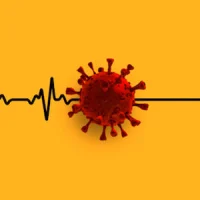According to a study that analysed electronic health records (EHRs) of more than 1 million patients ages 18 and younger, children infected with COVID-19 show a higher risk of developing type 1 diabetes. The study is published in JAMA Network Open.
Researchers report that children and adolescents who contracted COVID-19 were more prone to developing type 1 diabetes in the six months following a COVID diagnosis. A 72% increase was found in new diagnoses of type 1 diabetes in COVID-19 patients 18 years or younger.
According to the CDC, nearly 187,000 children and adolescents younger than 20 years live with this disease in the U.S. Type 1 diabetes is an autoimmune disease and occurs when the body's immune defences attack insulin-producing cells, which stops insulin production. Since COVID-19 is believed to increase autoimmune responses, suggesting that it may be the trigger behind new-onset type 1 diabetes seems feasible.
The researchers analysed the electronic health records of nearly 1.1 million patients aged 18 years and younger in the U.S. and 13 other countries diagnosed with COVID-19 and those diagnosed with a non-COVID-related respiratory infection during the same study period. The study population was divided into two groups - patients up to age 9 years and patients 10-18 years. A total of 285,628 patients were included in each group.
Findings show that of these 571,000 paediatric patients, 123 recieved a new diagnosis of type 1 diabetes within six months compared to 72 patients in the non-COVID group. The risk of new-onset type 1 diabetes diagnosis was greater at one, three and six months following infection with COVID-19 than those with non-COVID respiratory infections. Results were similar for patients in the infant-9 year and 10-18 year old age groups.
These findings show that families with a high risk of type 1 diabetes should be alert for symptoms of diabetes in their children following a COVID-19 infection. Pediatricians should also be alert for new cases of type 1 diabetes, especially since Omicron has affected children as well.
Researchers are also investigating changes in the development of type 2 diabetes in children who have had a COVID-19 infection.
Source: Case Western Reserve University
Image Credit: iStock
References:
Kendall EK, Olaker VR, Kaelber DC et al. (2022) Association of SARS-CoV-2 Infection With New-Onset Type 1 Diabetes Among Pediatric Patients From 2020 to 2021. JAMA Netw Open. 5(9):e2233014.










